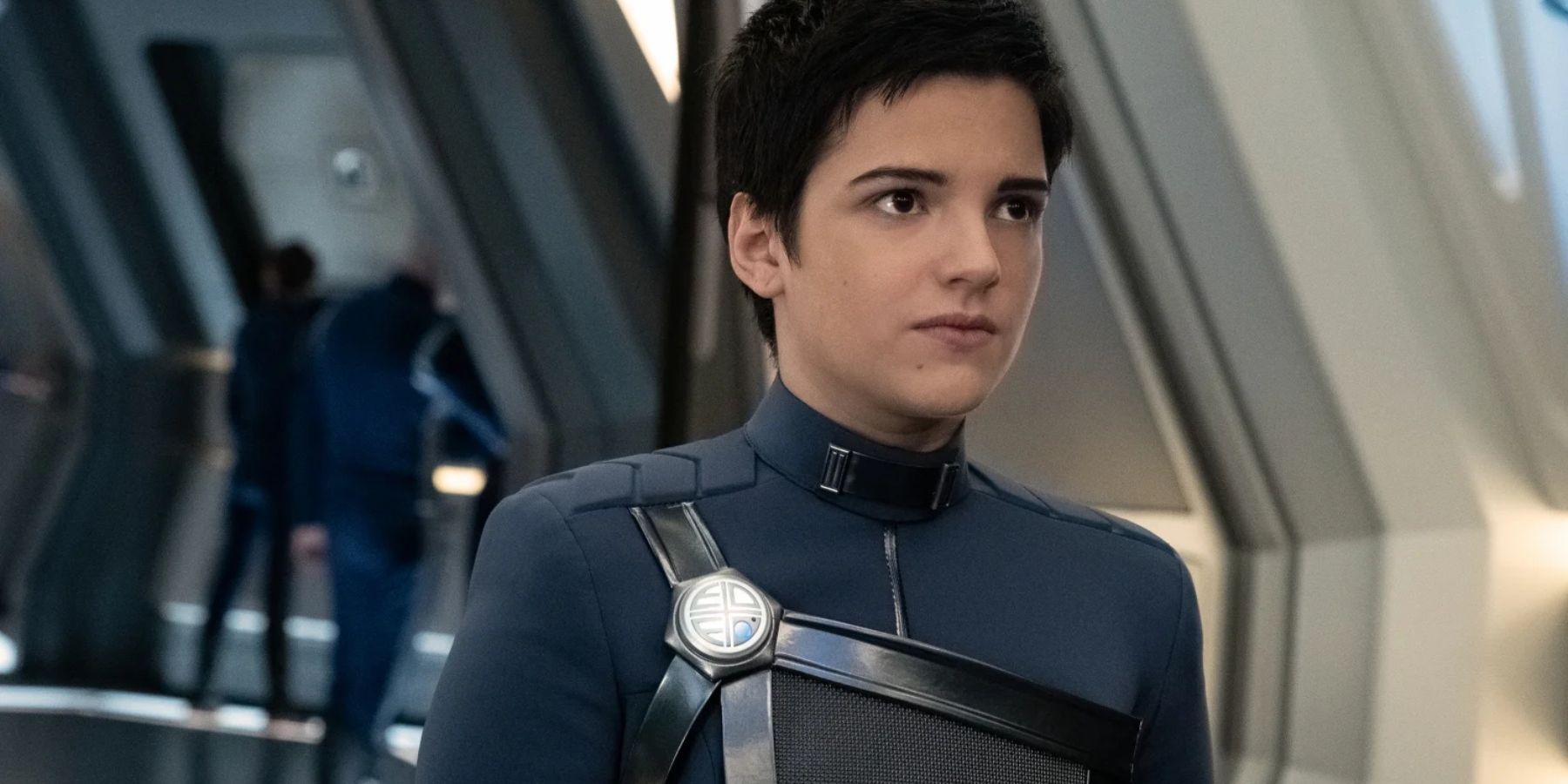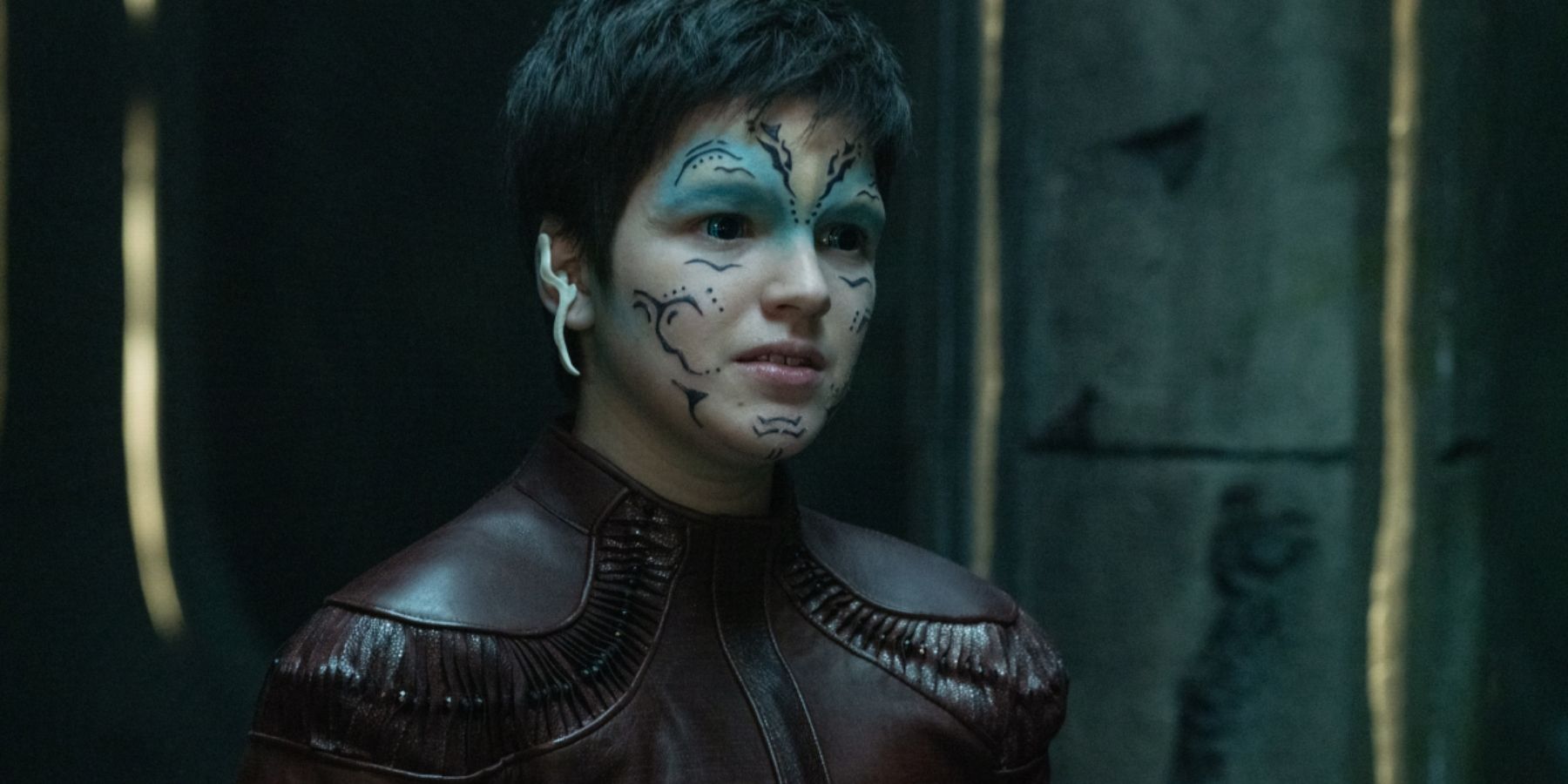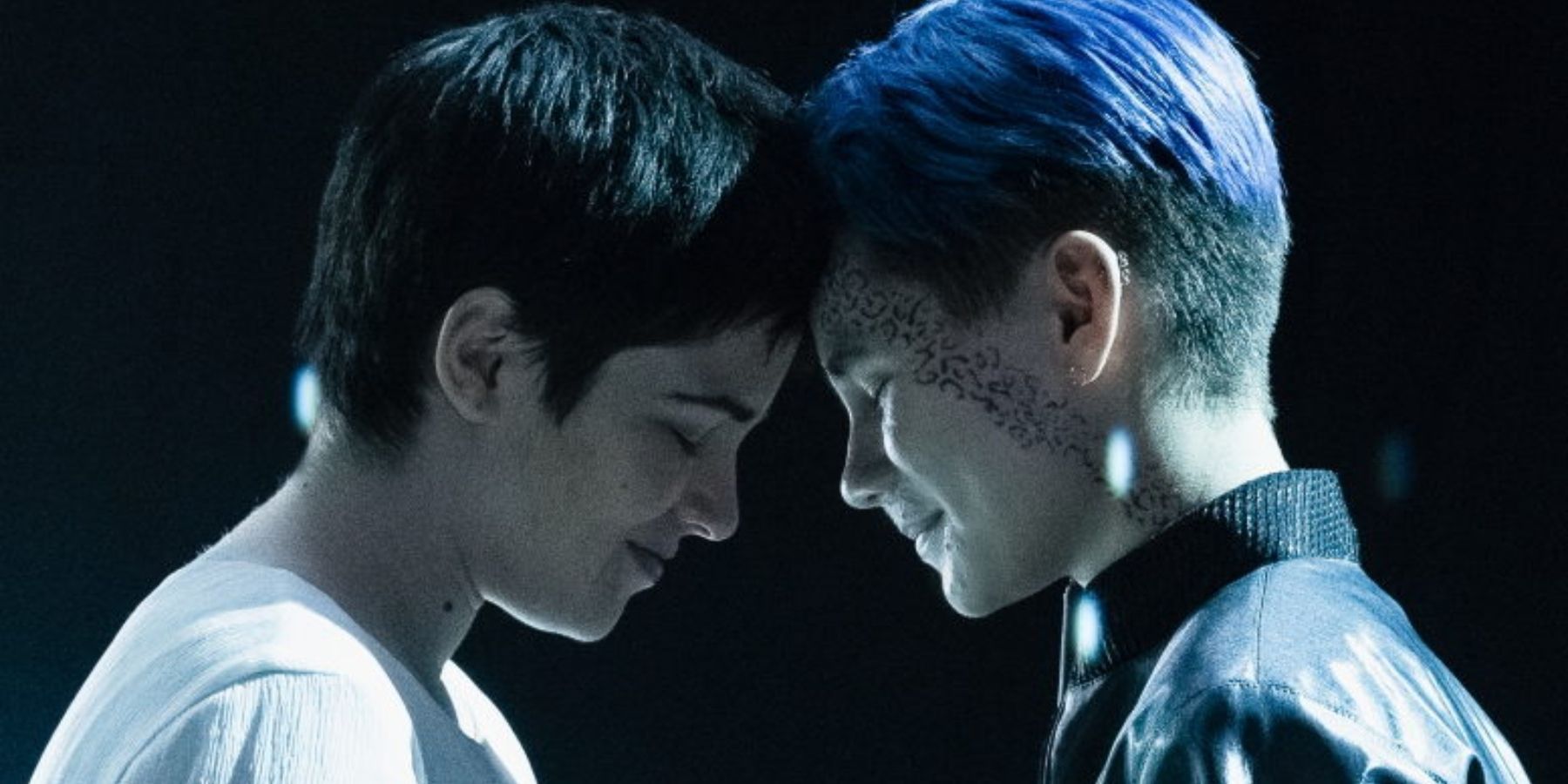Star Trek: Discovery is the first of the Star Trek franchise to not have been made in the U.S. but was made in Canada. This is perhaps one of the reasons that this series that began in 2017 didn’t shy away from taking a progressive and more inclusive approach. As Star Trek has always aimed to portray bright futures, Discovery appears to be just such a futuristic production, in theory and in reality. There are many elements that go into both the creative and marketing sides of the show that are progressive. Even the catering food served on set is progressive, as many of the cast and crew are vegan.
This series is the second Star Trek show, after Star Trek: Voyager, to feature a female lead, as well. The writers even give her a less traditional name for women: Michael. The main cast also features an openly gay couple, Hugh Culber and Paul Stamets (played by Wilson Cruz and Anthony Rapp). Another significant addition this series made to their cast in Season 3, who gained a lot of attention, was Adira Tal.
Adira’s character joined the show in 2020, played by non-binary actor, Blu Del Barrio, and has since received lots of positive feedback. The way that Adira is introduced in the show is even sensitive and respectful. When they are first introduced, it is not totally clear that they are non-binary; in fact, they use she/her pronouns for several episodes. Their non-binary identity and pronouns are a detail that is transitioned into the show so that it feels more natural in the storyline, and so it doesn't diminish the significance of the character to only serve as a diversity role. By the time they tell Stamets that they "never felt like a 'she' or a 'her,'" the audience is already attached to Adira.
Adira was at one point even in a relationship with a Trill, which also caters to the representation seen through this character. Though fate has other plans for the future of the relationship, this relationship was essential to Adira becoming Adira Tal, as they received the symbiont from their former partner. Further, the inclusion of their relationship helps to present Adira as a relatable character for the non-binary audience.
Along with doing a fantastic job bringing the character to life, Del Barrio also understands some of the emotional and mental struggles of their character and what they represent, historically. Not long before Del Barrio was cast in the role, they were exploring their own understanding of their gender identity. Auditioning for non-binary roles is part of what allowed them to understand themself, and become comfortable wearing that on their sleeve too, just as Adira does as Season 3 progresses.
It is a difficult transition to both understand oneself, and have to teach others to see oneself that same way. What's more, it adds another layer of difficulty to do so under the public eye. While owning one’s identity in the light of Hollywood can result in an outpour of support, it’s just as likely to receive negative responses by those made uncomfortable by perspectives they don’t understand. This detail really speaks to Del Barrio’s ability as an actor, because not only is their performance scrutinized, but so is their personal life. To face that daily requires a significant level of psychological and emotional strength, all while not letting it affect the job.
Del Barrio shares some common experiences, with their character but they also have a personal bond to Adira. Having this connection to a character often creates a more impressive performance because the actor embodies that character’s emotions. Such performances are the kind that can make an actor’s career. Del Barrio was fortunate to find some mentorship in Cruz and Rapp, as they helped them understand how to handle the pressure of the role and fame, which allowed them to be comfortable and successful in playing Adira. This is reflected in the onscreen relationships of their characters: Hugh and Paul take Adira into their lives as their adopted child.
Along with the significance of this role to Del Barrio, it is also very important to the audience of non-binary folks, or those that are exploring their gender or sexuality and trying to better understand themselves in the same way. The existence of Adira’s storyline, along with the true-life story of Del Barrio’s personal relationship with the character, is likely to inspire anyone — but especially those that can relate to the very relevant struggles of the character and actor.
Even those that find themselves bothered by a non-binary character in the series can learn something from it. Either it can reflect to them a conflict within themselves, or it could help them to see a perspective that they are oblivious to or unaware of. Having a non-binary character in such a popular franchise is very important, because so many people consume Star Trek media. These examples of acceptance in film and television help close-minded individuals to open their perspective, and help those struggling to understand themselves find community and understanding.
Beyond what they represent to the LGBTQ+ fans, Adira is an overall inspiring character that adds to the found-family element of the show. They endure a considerable amount in their lifetime and still persevere, prioritizing themself and their own growth, making them a good example for any viewer in the audience. Adira Tal is certainly a good addition to Star Trek: Discovery, and Del Barrio's performance of the character is one that has inspired the cast, fans of the show, and future filmmakers alike. It is almost certain that this example of diversity and inclusion, along with a few other similar examples in modern television and film, will not be the last of their kind.
Source: Wikipedia - Star Trek Discovery







